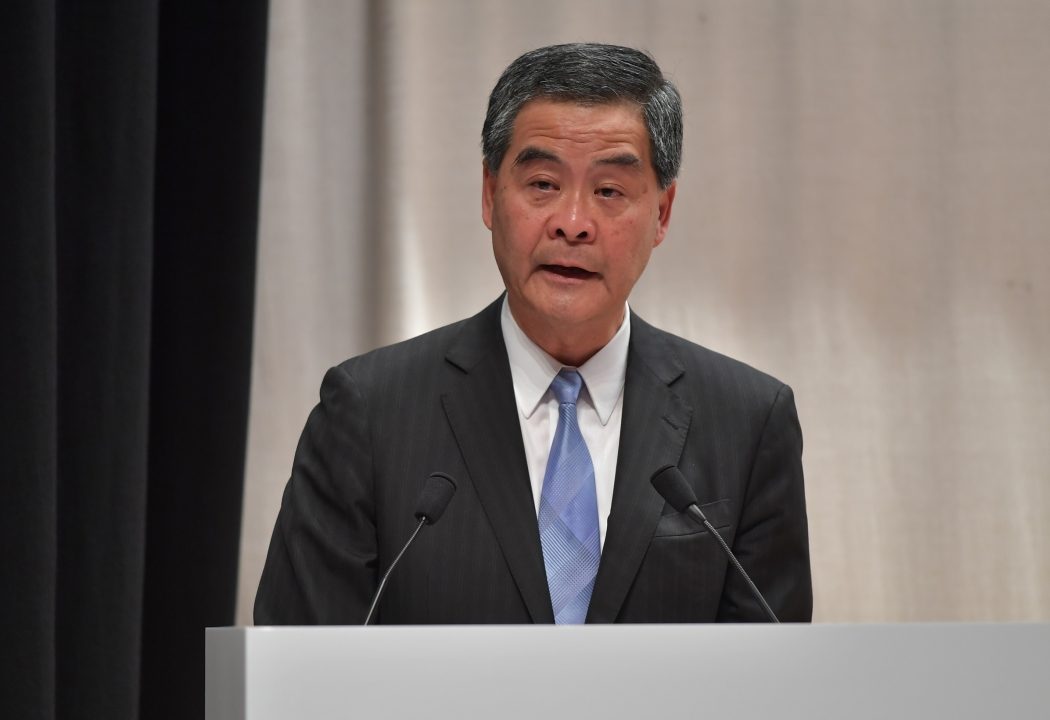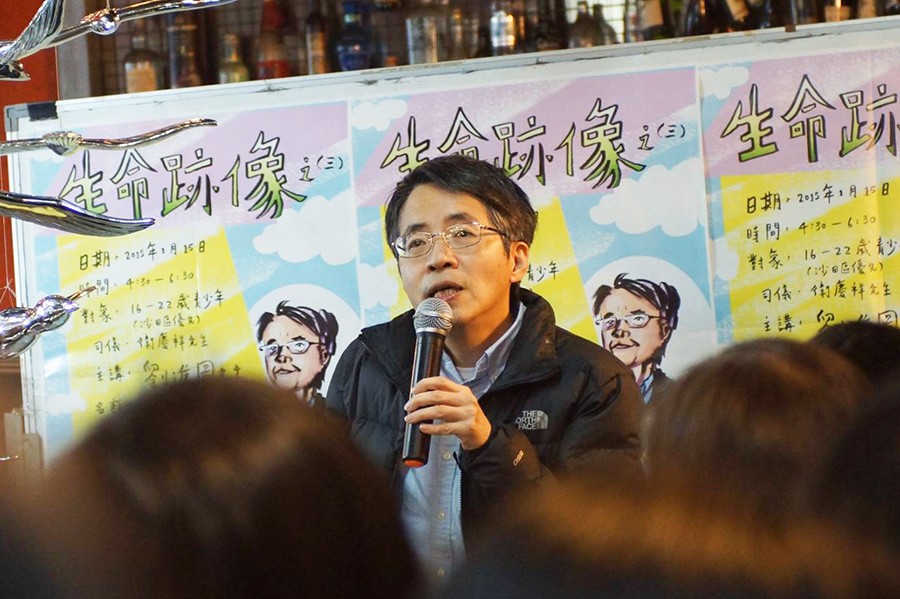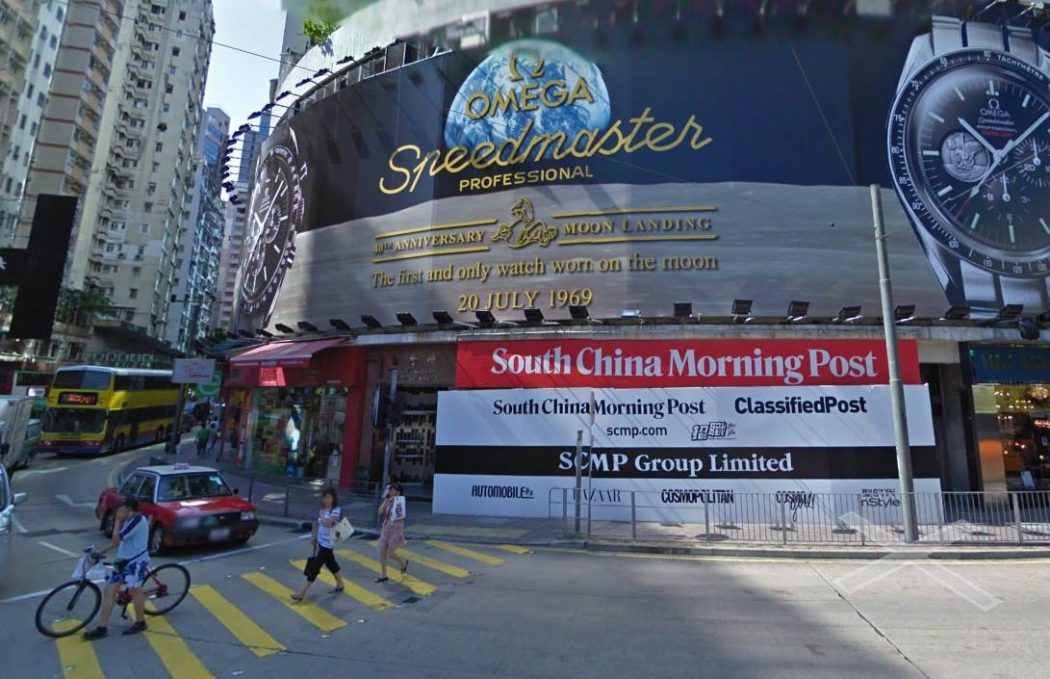An independent press is called the fourth estate because it holds accountable the ruling class – from the clergy and the noblemen in medieval times to the three branches of government in modern democracies.
In Hong Kong, the press plays an especially critical role because citizens are deprived of a democratically elected government. Both the chief executive and nearly half the legislature are appointed by small committees stacked with pro-Beijing loyalists, which gives ordinary people little leverage over politicians they play no part in choosing. Going to the press is often the most effective, if not the only, recourse available to those who want their grievances heard or injustices righted.

Article 27 of the Basic Law protects freedom of the press, as does the Bill of Rights Ordinance which guarantees broad rights to “impart information and ideas.” While the letter of the law is clear, the reality in which journalists operate tells a different story.
Since the handover, Hong Kong’s ranking on the World Press Freedom Index has been in freefall, slipping from 18th in 2002 to 73rd in 2017 and lagging behind countries such as Haiti, Bosnia and El Salvador.
Has the city’s free press become the first casualty in the “one country, two systems” experiment?
Overt suppression
In Hong Kong, direct encroachment on press freedom can take many forms. The Apple Daily, the only broadsheet newspaper that remains openly critical of Beijing, bears the brunt of the onslaught.
During and since the Umbrella Movement, the paper has come under repeated cyber-attacks, its parent company Next Media has had its headquarters firebombed, and its outspoken founder Jimmy Lai Chee-ying has been harassed.
But Apple Daily is hardly alone and its woes are merely the tip of the iceberg.

First, there is outright censorship. Since 2015, online-only news media outlets such as Hong Kong Free Press, Initium and Stand News have been barred from attending government press conferences. Just last week, the government’s Information Services Department extended the ban to official events related to the 20th anniversary of the handover.
“Online media make bureaucrats nervous because they are hard to control,” says Lau Sai-leung, a former government information coordinator and co-founder of House News, the predecessor of Stand News.
“Unlike most traditional print media outlets which are owned by big businesses, online outlets are independently owned.” Lau tells me. “They are targeted because they aren’t part of the unholy alliance between the government and the establishment.”
Defamation suits are another effective tool to silence the independent press. On at least three occasions between 2013 and 2016, chief executive Leung Chun-ying threatened litigation against Hong Kong Economic Journal (HKEJ) and Apple Daily for reporting his alleged ties with Triads, abuse of power and undeclared business dealings.
“Leung’s threats bear the hallmarks of the intimidation tactics in Singapore, where senior government officials are known to use legal action to inhibit dissent,” William Nee, a Hong Kong-based researcher at Amnesty International, tells me.

If all things fail, however, adversaries resort to the blunt instrument of physical violence. The Hong Kong Journalists Association documented a significant surge in the number of cases of attacks on frontline reporters during and since the Umbrella Movement by pro-Beijing groups and, in some instances, law enforcement.
Among the long list of documented physical assaults committed against journalists, the most egregious one occurred in 2014 when Kevin Lau Chun-to, the former editor-in-chief of Ming Pao, was stabbed six times in broad daylight outside a restaurant. The news sent shock waves across the media industry and remains one of the most frequently cited incidents of violence against journalists in the region.
Lau and his colleagues spent weeks after the attack sifting through hundreds of news reports he had worked on, trying to identify individuals or organisations he might have upset. It was a sobering exercise for him and his staff.
“The chilling effect on investigative journalism and the news media at large is immediate and far-reaching,” said Lau. “A student came up to me after a public event recently,” he recalled, “and told me her parents had been talking her out of majoring in journalism at university because they think that line of work is no longer safe. That broke my heart.”

When asked whether the knife attack was an isolated incident or part of a worrying trend, Lau said, “A single attack is one too many. The uncertainty of not knowing when the next strike will happen or what may trigger it is enough deterrence to journalists.”
Indirect pressure
The post-handover era has witnessed a series of ownership changes in the media industry. In 2001, pro-Beijing businessman and CPPCC member Charles Ho Tsu-kwok took over the Sing Tao Daily and The Standard. Five years later, HKEJ was sold to Richard Li, of telecoms giant PCCW and younger son of tycoon Li Ka-Shing. In 2015, Jack Ma’s Alibaba bought the South China Morning Post (SCMP) and other media assets for HK$2 billion.
“China has been mobilising the local business elite and making them do much of its dirty work,” Chip Tsao, columnist, radio host and opinion leader, told me last month. “Beijing bedazzles them with economic possibilities in the new China and asks for their ‘understanding’ and ‘cooperation’ when implementing its political agenda in Hong Kong. It is part of the ‘United Front’ campaign that began long before the handover.”
According to Tsao, United Front is a series of coordinated efforts orchestrated by the Communist Party and carried out by the Liaison Office – the de facto Chinese consulate in Hong Kong – to tighten control on the city, most notably by recruiting prominent business leaders in Hong Kong and op-opting them as CPPCC members or unofficial advisers to the central government.
“Buying up newspapers and making senior editors pull their punches when covering the mainland are all part of that scheme. Once Beijing has these local businessmen on a leash, self-censorship is just a phone call away,” Chip explained. He used that to explain controversial editorial decisions such as the one reportedly made by SCMP to reduce and bury its report on the alleged suicide of mainland activist Li Wangyang.

Other than editorial decisions, self-censorship can also take the form of personnel changes, including management reshuffling in the newsroom and discontinuation of influential columns.
In 2012, CPPCC member Wang Xiangwei was made SCMP’s editor-in-chief after top management discussed Wang’s appointment with the Liaison Office, according to Asia Sentinel. In 2014, Ming Pao replaced its chief editor Kevin Lau Chun-to with a more Beijing-friendly candidate from Malaysia. Two years later, the paper removed its executive chief editor Keung Kwok-yuen on the same day that an investigative report on the Panama Papers – one that would implicate the Beijing leadership – was to be published.
In 2015, SCMP terminated a number of outspoken columnists including Philip Bowring and Frank Ching. In the following year, HKEJ fired Joseph Lian Yi-zheng, a no-holds-barred columnist on mainland and cross-border issues.
Whatever the motive behind these decisions, they resulted in the dual consequence of removing critical voices and perhaps sending a message to the rest of the staff that they need to fall into line.

Just as media companies are pressured to self-discipline and in some cases self-mutilate, so are advertisers who want to stay on Beijing’s good side. “China is the world’s fastest growing market, and big businesses naturally think it wise to avoid placing ads in publications that are deemed ‘unfriendly’ to Beijing,” says Dorothy Wong, a seasoned marketing executive in the media industry.
Self-censorship by local corporations, such as banks and property developers, can have a devastating impact on traditional news media outlets that rely heavily on advertising revenue. For multinationals and international labels, much of the self-censorship is done by the advertising agencies.
“The Chanels and the Guccis of the world rely on local advertising agencies to advise them on local culture and faux pas,” Wong tells me. “These agencies will always err on the side of caution. If they already have a tight budget to work with and a large number of publications to choose from, why would anyone stick their neck out and make recommendations that could ruffle feathers for them or their clients?”
Industry disrupted
All of the foregoing come at a time when the press media is already under tremendous financial stress. Social media has fundamentally changed the way the world receives and disseminates information, and the ability for traditional news media to retain readership is now a matter of survival.
Whereas pro-Beijing media outlets are either run by deep-pocketed businesses or bankrolled by the Liaison Office, those that refuse to play ball with Beijing will need to find inventive ways to sell more papers to stay afloat.
The Apple Daily, for instance, does so by going the way of the Daily Mail and blurring the line between information and entertainment. In addition to giving generous coverage to celebrity gossip, it frequently pushes the boundaries of professional ethics. In 2000, an Apple Daily reporter was convicted for bribing police officers to obtain information about active criminal investigations. In 2016, the paper was ordered to pay BaWang Shampoo HK$3 million in damages for making unsubstantiated statements about the safety of BaWang’s products.

Apple Daily’s “supermarket tabloid” business model has called into question the paper’s credibility. Moreover, it reinforces the perception that, for a news media outlet to survive in Hong Kong, it either needs to go red or go over the top – neither approach does much to close the industry’s image gap.
“The media industry has an identity crisis. It seems to have lost its way in the age of Facebook and Instagram,” said Wong. “No wonder circulation is way down. In the hey day, newspapers used to sell tens of thousands of copies every day. Now we are talking about hundreds, sometimes dozens. Circulation is so low that we have stopped using that word,” she said. “We talk about ‘readership’ instead because those numbers are less scientific and more easily fudged.”
The tough business environment has created a vicious circle that makes the industry more vulnerable to direct and indirect clampdown on press freedom, which in turn affects the quality of reporting and hurts readership.
“Political pressure has always existed – it existed long before the handover,” Kevin Lau Chun-to tells me over coffee. “The difference between now and then is that in the 1980s and 1990s, the media industry was much more robust than it is today. Back then, if the authorities managed to dissuade one newspaper from publishing an unfavourable story, other papers would step up. And if one advertiser decided to drop a newspaper, other companies would fill the spot. The industry was in a much better position to withstand political pressure. Since the handover, however, the balance of power has completely shifted in the authorities’ favour.”
When one rooster dies, another crows
From direct suppression and self-censorship to the media industry’s own existential crisis, the walls are closing in on the city’s fourth estate. While these issues are not unique to Hong Kong, their impact is magnified by China’s new economic might and its ability to marshal the local business elite. What’s more, the looming threat of an anti-subversion law continues to hang over the head of every journalist like the Sword of Damocles.

But all is not lost. The rapid growth of online media outlets in Hong Kong, spurred in part by the the Umbrella Movement and the political awakening it engendered, offers a glimmer of hope.
“There is a common perception that Hong Kong’s news media is doomed, but it is only a perception,” Johnny Lau Yui-siu, veteran commentator and China relations expert, tells me. “I believe the industry is merely going through an evolutionary cycle. Traditional media is shrinking, but it has opened doors to new players. As the Cantonese saying goes: ‘when one rooster dies, another crows.’”
He pointed to the proliferation of online-only news sites, Facebook pages, podcast and YouTube channels. “Many of the newcomers are extremely successful in attracting clicks and eyeballs,” said Lau. “Their influence on public discourse, especially among young people, is growing exponentially. This is happening even when economic and political odds are stacked against them. I find that very encouraging.”
When asked how much longer independent media outlets, regardless of their format, can stand up to the crushing political pressure from Beijing, Lau was positively defiant. “We need to press ahead despite—and because of—the tremendous challenges facing us. All we need to do to look at what is going on north of the border—journalists on the mainland put their lives in grave danger every day. We need to work all the harder to defend the freedom we have and make the best of it while it is still there.”
“I’m not overly optimistic about what will happen in the short term, but I refuse to be overly pessimistic about the long term,” said Lau.
Correction 10/07: A previous version of this feature referred to Victor Li, as opposed to his brother Richard Li, as the owner of HKEJ.
